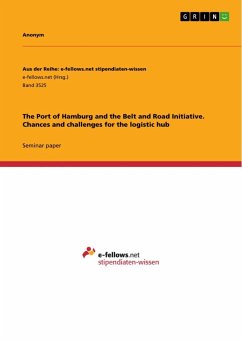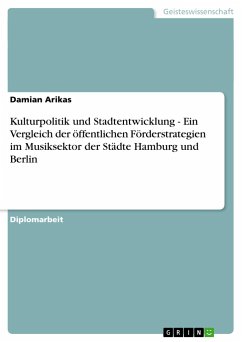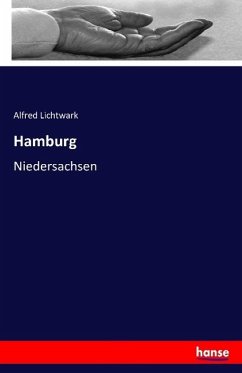Seminar paper from the year 2019 in the subject Asian studies, grade: 1,7, University of Duisburg-Essen, language: English, abstract: This paper focuses on the economic outlook of the Port of Hamburg in general and challenges and chances presented by the Chinese Belt and Road Initiative (BRI) especially. Leading research question is: Is the Port of Hamburg profiting by the BRI or is it risking being left out by this century's major development program?Hamburg is a traditional center of European-Chinese trade since 1731, when the first ship arrived from Guangdong province delivering tea, silk and porcelain.Today, 5.900 Chinese citizen are living in the Hanseatic city. More than 550 Chinese companies have their seat in Hamburg, most of them in the logistics, aerospace and energy sector. Amongst others, the stateowned China Ocean Shipping (Group) Company (COSCO), the biggest Chinese shipping company, has its European headquarter in Hamburg. Only in North Rhine Westphalia (1.100) andHesse (700) are more Chinese companies registered.In 1986 Hamburg established a twinning agreement with Shanghai, where Hamburg operates the Hamburg Liaison Office (HLO). In 2016 a second dependence opened in Beijing. Furthermore, the north German metropolis is staging the biennial high-level conference "The Hamburg Summit: China meets Europe", one of the most important fora of Sino-European cooperation. Economically or politically, the Port of Hamburg is the transmitter of Hamburg's and Germany's close ties to China and dominated the EU-China trade together with Dutch and Belgian ports for the last decades. However, changing geopolitical landscapes, namely the introduction of the BRI, challenge the former "top dog". The Port of Hamburg has to face ongoing pressure from inner-German competitors like Duisburg and ports in the Mediterranean Sea.
Hinweis: Dieser Artikel kann nur an eine deutsche Lieferadresse ausgeliefert werden.
Hinweis: Dieser Artikel kann nur an eine deutsche Lieferadresse ausgeliefert werden.








